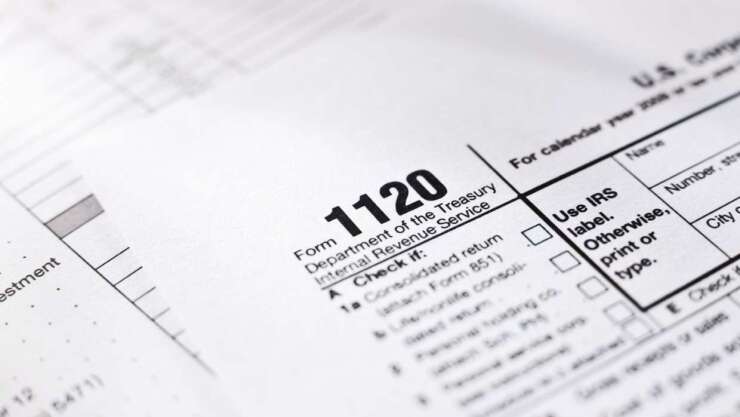The uncertainties in the year ahead are making it difficult for corporate tax executives to decide exactly what to do, given the challenges surrounding COVID-19.
The No. 1 tax issue this year is mapping the tax impact of COVID-19-related business strategies, according to a recent
Tax professionals have needed to navigate many pandemic-related uncertainties this past year, including the pivot to a remote work environment, along with the tax provisions in stimulus legislation like the CARES Act, the Families First Coronavirus Response Act, last December’s COVID relief package, and the new stimulus package that’s moving through Congress in a Biden administration that many fear will raise taxes on corporations and high earners.

“Managing tax in a business organization during a pandemic has been a real challenge,” said Matt Becker, national managing partner of tax at BDO. “What the survey tells us is not a surprise. The greatest challenge to tax departments is just managing essential tax work and the effect of the pandemic. On top of that, gauging the business impact of the pandemic, and tax considerations related to that business impact, also present a challenge. There’s a lot of uncertainty out there currently. Trying to understand the tax impact of business decisions being made because of the pandemic is something that a lot of tax executives are focused on during a period like we are in now, when everybody is in a work-from-home state and teams of people in general are just more difficult to manage.”
The survey found that 70 percent of tax executives anticipate their organization’s total tax liability will increase in the next 12 months, while 92 percent believe the U.S. federal corporate income tax rate will increase this year.
“I think what that signals is a belief that a lot of the fiscal incentives that governments have provided to economies have to be financed somehow, and businesses expect to see their tax liabilities overall increase, in an effort to pay for some of the stimulus that they have been provided,” said Becker.
Tax executives are apparently expecting their companies’ taxes to rise under the Biden administration, which is hoping to pass its COVID relief package before the middle of March and to introduce tax legislation by next year. “Other things that can be gleaned from the survey are just the theme of accelerated complexities over the next year,” said Becker. “Anytime you start changing the Tax Code, it creates complexity and requires adaptation in these corporate tax departments. It presents challenges, especially in resource-constrained times such as these.”
On the positive side, 49 percent of the tax executives polled think the pandemic has enhanced the role of the tax function as a strategic partner in their organization, while 46 percent believe it has improved workforce culture and unity, and 45 percent indicated it has fostered faster decision making.
While mapping the tax impact of COVID-19-related business strategies was the top tax issue, according to 50 percent of the respondents, the greatest challenge to tax departments was managing essential tax work in light of COVID-19, according to 34 percent of the respondents. The No. 1 personal challenge for tax executives was keeping up with regulatory and compliance challenges, according to 25 percent of respondents.
Many companies are also facing supply chain difficulties during the pandemic. “A lot of the organizations that responded to the survey report that the value chains at their organizations are being changed as a response to the pandemic,” said Becker. “We’re talking about changes in things like raw materials globally, manufacturing processes, where those processes occur, where products are stored, where products are shipped. When organizations change things like that, they change the footprint of their business, if you will. When you change your value chain, it creates significant reporting complexity, both financially and certainly from a tax perspective.”
Besides tax changes in Washington, state and local governments may also raise taxes in response to the pandemic, adding to the uncertainty for tax professionals. “The executives that we spoke with on the survey recognize that local jurisdictions and state jurisdictions are seeing these huge deficits just like the federal government is, and we will likely see increased pressure and enforcement around sales and use tax obligations,” said Becker. “We’re likely to see increased pressure on income tax enforcement audits at the state level, and increased taxes at the state level as well. I think there’s a federal story to be told here, and there’s also a state and local story that really mirrors what we see at the federal level, but is equally significant.”





